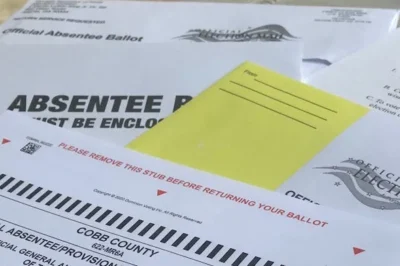South Carolina Candidate Oath Law Violates Free Association Rights, Argues ACLU
FOR IMMEDIATE RELEASE
CONTACT: (212) 549-2666; media@aclu.org
COLUMBIA, SC – The American Civil Liberties Union argued before the South Carolina Supreme Court today that a South Carolina candidate oath law is unconstitutional and was unconstitutionally applied to state legislature candidate Eugene Platt. The law requires every candidate for office to sign an oath to abide by the results of a party's primary and if the candidate loses the party's primary, bars the candidate from petitioning or campaigning as a write-in candidate for the general election ballot for any office for which the party has a nominee.
"The candidate oath law unconstitutionally violates the right of voters and parties to select the candidates of their choosing," said Bryan Sells, a senior staff attorney with the ACLU Voting Rights Project who argued the case. "The First Amendment provides special protection for the process in which a political party selects a nominee that best represents its ideology and preferences."
South Carolina is one of only four states that permit fusion voting, allowing multiple political parties to nominate the same candidate; however, the state's candidate oath law unconstitutionally bars a candidate from having his or her name placed on the general election ballot by another political party even if the candidate wins the other party's nomination.
Platt was chosen by the Green Party as its candidate for a state legislative house seat and subsequently lost the nomination for the same office in the Democratic primary. Under the oath statute, a state court barred Platt from running as the nominee for the Green Party and denied him the opportunity to present evidence that he was not in violation of the oath, although Platt had not allowed his name to be placed on the general election ballot by petition and had not campaigned as a write-in candidate.
The ACLU charges that the oath statute was applied without due process and imposes an unjustified burden on the First Amendment's free association rights of Platt and voters who supported him, as well as the Green Party's right to select its preferred candidate.
"South Carolina's election scheme rejects the First Amendment's fundamental protections and makes the outcome of one party's primary dependent on the outcome of every other party's nominating process," said Laughlin McDonald, Director of the ACLU Voting Rights Project. "The real losers here are the democratic process and the voters of South Carolina who are being denied greater choices at the ballot box."
Attorneys on the case are Sells and McDonald of the ACLU Voting Rights Project.
The legal documents in the case, Tempel v. Platt, are available at: www.aclu.org/votingrights/access/36353res20080807.html
More information on the work of the ACLU Voting Rights Project is available at: www.aclu.org/voting-rights



